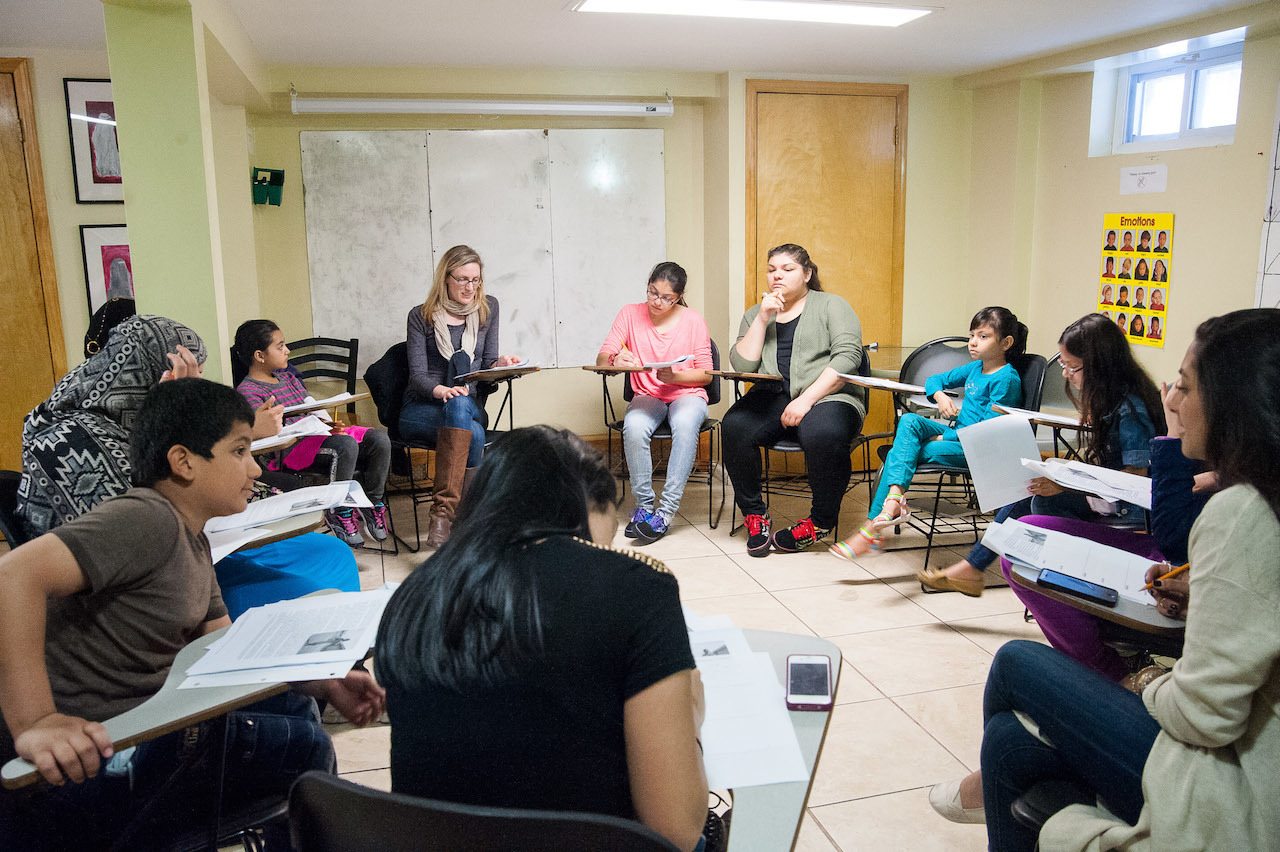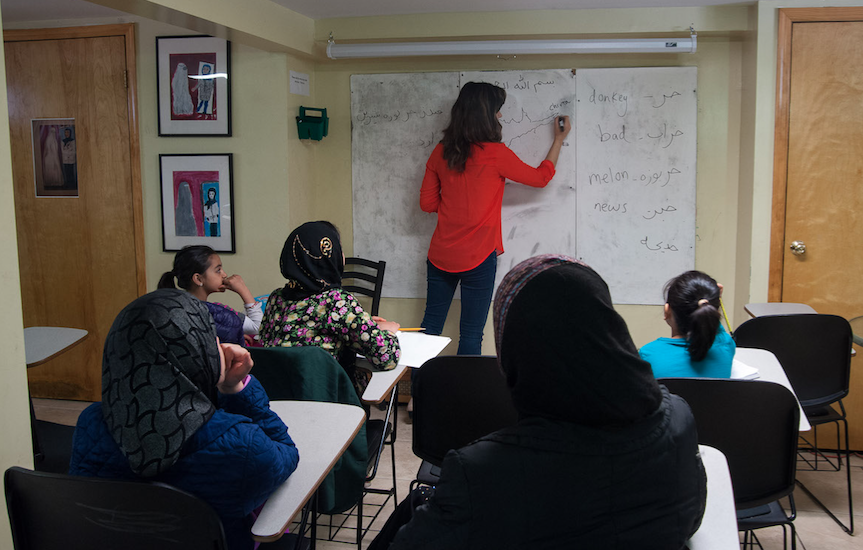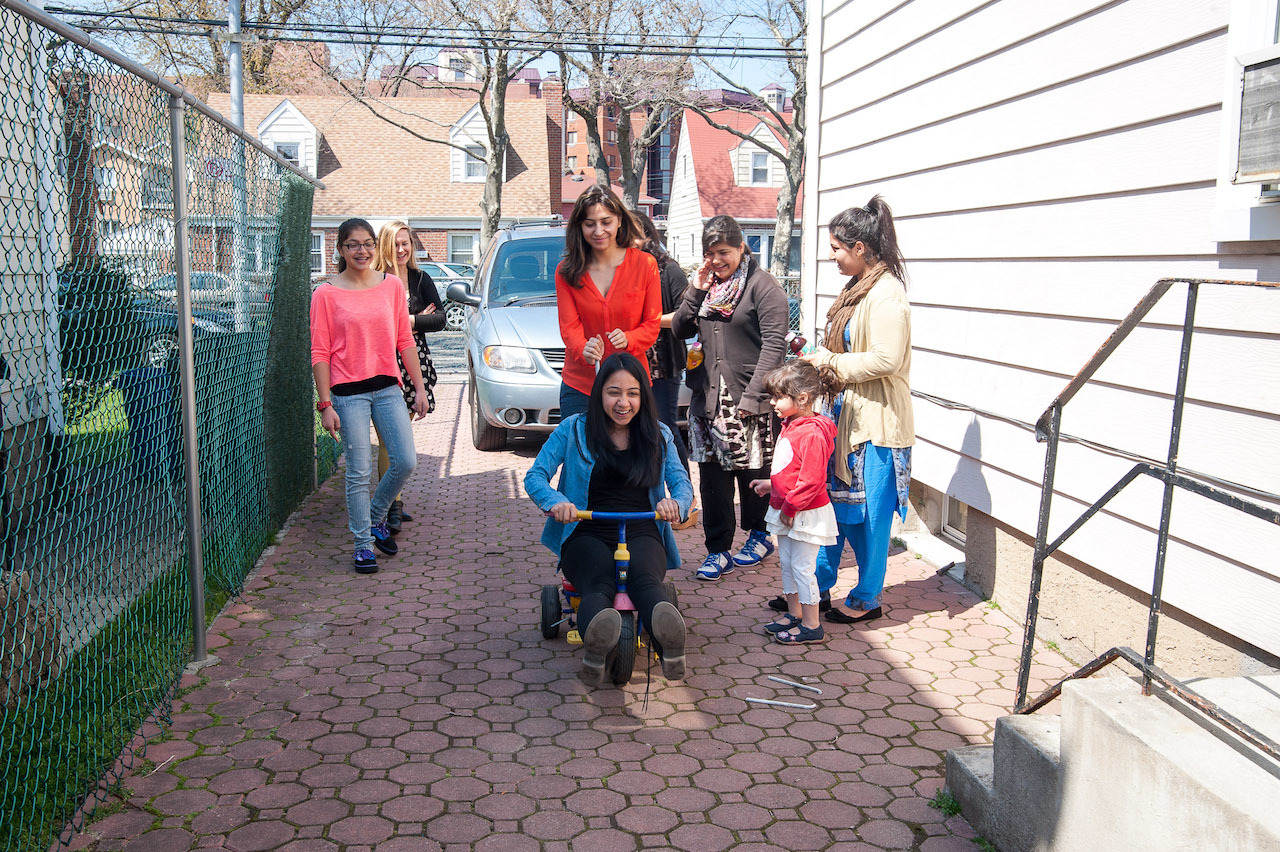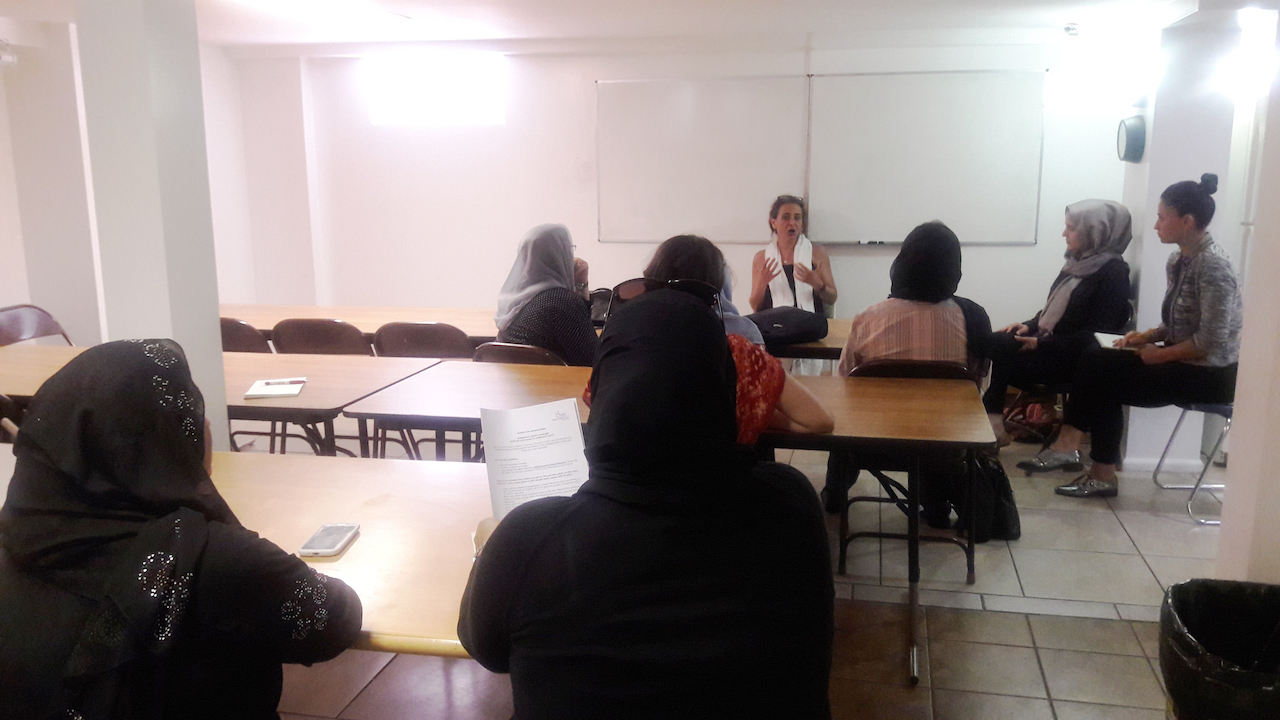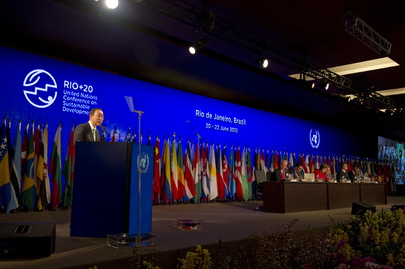On a tree-lined street in Fresh Meadows, Queens, the New York Community Center of the non-profit Women for Afghan Women (WAW) buzzes with activity. Operating in a two-story house, the Center is a place for women and girls of Afghan descent to learn English, prepare for the U.S. citizenship test, and find counsel for social services.
The New York Community Center is but one part of a grassroots organization with a mission to protect, secure and advance Afghan women’s rights around the world. WAW works directly with the Afghan community in New York City, and it is a resource for Afghan women everywhere to find the help they need on a local level. In Afghanistan, WAW serves as a lifeline, providing shelter from the Taliban, counseling and legal representation following the most extreme human rights violations, and training that fosters literacy, vocational skills and job placement. WAW also has an office in DC advocating Afghan women’s rights in the frame of U.S. and international policies.
Since its founding 15 years ago, WAW has helped improve the quality of life for more than 21,000 Afghan women and girls, and it is the largest shelter-providing non-governmental organization in Afghanistan. Through the New York Community Center, more than 175 Afghan women have become U.S. citizens – a 100% success rate – and over 100 women have secured full- or part-time employment in the past six years.
Photo Credit: Women for Afghan Women
In May, WAW celebrated its anniversary with a fundraising gala, “15 Years of Spirit Indestructible!” At the event, WAW client Sitara gave a speech about the incredible impact the organization and its center in New York has made on her life. Translated to English by WAW Program Associate Fatima Rahmati, Sitara spoke about her journey from Afghanistan to Pakistan to the U.S.
“My only dream was to survive and escape war,” she said. After her house was bombed in Afghanistan, she fled to Pakistan, where she endured incredible hardships as a single mother with barely enough to support herself and her daughter, Sara. Coming to the U.S. in Queens as a refugee without social ties and unable to speak English, Sitara said she was “alone and lost.”
Sitara described her first experience in the New York Community Center, where she was told, “Don’t worry. We are here. Everything will be all right.” Since that day, Sitara said, “WAW has been with me every step of the way, and they still are.” WAW has been a foundation for Sitara, helping her learn English and apply for housing, food stamps, Medicaid, a Social Security card, and Green Card. WAW has also enrolled her daughter Sara into school and given her one-on-one ESL lessons and tutoring so she can keep up with her classmates.
“WAW is not just a place we go for services,” said Sitara. “Women for Afghan Women is a lifeline. It is family.”
FROM QUEENS TO THE WORLD
WAW was founded in April of 2001 by a small group of activists determined to advocate for Afghan women under the then-brutal Taliban rule in Afghanistan. After 9/11 and the ousting of the Taliban, the organization took a slightly different direction, but its mission remained the same.
“WAW’s co-founders quickly learned that Afghan women living in New York City were facing parallel cultural constraints and enduring similar abuses as their sisters at home,” said WAW Executive Director Manizha Naderi. “In order to respond to this crisis, WAW founded the New York Community Center.”
By 2003, the Center went from supporting a few Afghan women and their families to offering specialized services for an entire community. “WAW has reached out to more than 10,000 people in New York in the past ten years toward advocacy and direct services and education,” said Naheed Samadi Bahram, WAW New York Program Director. The services include domestic violence support, girls’ leadership development, and children’s tutoring.
Photo Credit: Women for Afghan Women
The majority of the women and children who go to and directly receive help from the Center live in Queens, where there is a large Afghan population. While approximately 92% of WAW clients live in Queens, the Center services are available to residents of all five New York City boroughs and Long Island.
“We receive a lot of calls from different parts of the country, too,” said Bahram. Numerous calls come in from Virginia and California, which have high Afghan populations. Bahram added that recently there are more calls coming from Texas because “the newcomers are going there.”
The calls from Afghan women extend beyond the U.S. and range from the U.K. to Poland to Australia.
WAW’s website is often the starting point for Afghan women to learn about the organization and make the call. “They research us because I think we are the only one in the country that works directly with victims of domestic violence, with Afghans,” said Bahram. WAW would then connect the woman to a service provider in her locale, acting as a translator and ensuring the woman’s rights are protected and she is in a safe place.
BRIDGING SUPPORT WITH IMAMS
“Usually, the husbands, when something happens with them, they go to the mosque, and usually they talk to the imam about the problems,” said Bahram.
WAW has made a concerted effort to work with the three imams in Queens, going so far as organizing a four-day training on domestic violence prevention in 2013.
“The imams are very supportive of our work and are well educated and scholars, so they know the rights of women,” said Bahram. “They know it’s wrong to beat a woman. They know it’s wrong to isolate a woman.”
Imam Mohammed Sherzad of the Dar Al Taqwa Islamic Center in Flushing, Queens has played an active role in supporting Afghan women’s rights. Translated into English by Bahram, Sherzad said, “It is my religious and social responsibility to bring positive change and find solutions to the problem, so this is my responsibility to make sure to connect the people where they needed to, to these resources.”
Sherzad followed that the cultural differences between life in an Islamic country and in the U.S. can be a source of conflict. At the mosque, Sherzad has served as an intermediary to address these differences and the problems they incite. For example, Sherzad said, “The woman would call and tell me, ‘Do not mention my name, but this is my problem that I have. Could you please do this in a Friday lecture, because my husband will be present there, and he should know.’”
“He would address the problem,” said Bahram.
THE WORLD IN QUEENS
WAW makes every effort to take advantage of the diversity in Queens and build connections with other communities. The Center itself bustles with volunteers from either New York Cares or the Central Queens YM-YWHA, a non-profit Jewish community center.
Bahram first went to the Central Queens Y to speak about Afghan women’s rights and the situation in Afghanistan. The Y members showed a lot of interest in volunteering at WAW, and now dedicate every Friday to teach ESL and tutor WAW clients.

Photo Credit: Women for Afghan Women
“We are more than happy to make bridges with different faiths, and we want the women to learn more about the other faiths. It’s very important to me,” said Bahram. “I want my community to know – to learn more about the similarities of these religions than the differences.”
In October, the WAW clients were invited to dinner at the Y to celebrate Sukkot. Eight Afghan women and their families attended and learned about the holiday. WAW clients have also participated in events with the Flushing Interfaith Council, of which Bahram is a volunteer. Afghan families recently joined an Interfaith Unity Walk. Going from a Hindu temple to a synagogue to a church, the participants met with a religious leader at each stop to learn more the respective faith and practices.
WAW has also been proactive with community leaders to address the concerns of the recent increase of bias and hate crimes directed toward Muslims. “The women and the children we work with came out of this election feeling extremely insecure,” said Naderi.
The Afghan mothers have commented that their children are being bullied in school, and some of the women have contemplated taking off their hijab when they are out. “For our women, this is a really traumatizing possibility,” said Naderi. “The hijab is a symbol of their faith. The very idea of taking it off – just to feel safe – is painful for them.”
WAW orchestrated a highly attended women’s circle with guests Ruby Abdul, Community Liaison from City Council Member Brad Lander’s Office, and Piyali Basak, an attorney from Brooklyn Defender Services. The speakers assured the women that the U.S. is a nation of constitutional rights and liberties and that there is solidarity in our communities to defend rights for all.
“The relief the women felt after the circle was so palatable!” said Naderi. More than 40 WAW clients have since signed up to take part in the Women’s March on Washington the day after President-elect Trump’s inauguration.
It is a milestone for many of the Afghan women at WAW to vote in a presidential election and a first to march in solidarity and protest in Washington. Said Naderi, “It reminds us of why we call ourselves and our clients, ‘Spirit Indestructible!’”
Visit the Women for Afghan Women website to learn more about the organization.
Recommended reading: “EMPOWERING WOMEN: THE SILVER BULLET TO ACHIEVING THE SDGS”


